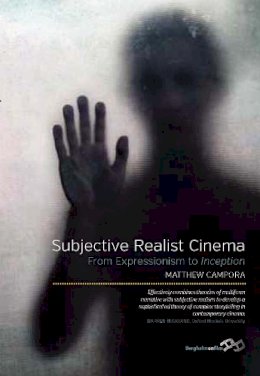
Stock image for illustration purposes only - book cover, edition or condition may vary.
Subjective Realist Cinema: From Expressionism to Inception
Matthew Campora
€ 137.10
FREE Delivery in Ireland
Description for Subjective Realist Cinema: From Expressionism to Inception
Hardback. From the German expressionist movement to contemporary Hollywood, many different cinematic techniques have been used to represent the subjective experience of characters on the screen. Subjective Realist Cinema looks at the fragmented narratives and multiple realities of a wide range of films that depict subjective experience.. Num Pages: 164 pages, black & white illustrations. BIC Classification: APFA; APFN. Category: (G) General (US: Trade). Dimension: 159 x 231 x 16. Weight in Grams: 402.
Subjective Realist Cinema looks at the fragmented narratives and multiple realities of a wide range of films that depict subjective experience and employ “subjective realist” narration, including recent examples such as Mulholland Drive, Memento, and Eternal Sunshine of the Spotless Mind. The author proposes that an understanding of the narrative structures of these films, particularly their use of mixed and multiple realities, enhances viewers’ enjoyment and comprehension of such films, and that such comprehension offers a key to understanding contemporary filmmaking.
Product Details
Publisher
Berghahn Books United Kingdom
Number of pages
164
Format
Hardback
Publication date
2014
Condition
New
Weight
401g
Number of Pages
160
Place of Publication
Oxford, United Kingdom
ISBN
9781782382782
SKU
V9781782382782
Shipping Time
Usually ships in 4 to 8 working days
Ref
99-2
About Matthew Campora
Matthew Campora is a Lecturer at the Australian Film Television and Radio School and an Honorary Research Fellow at the Centre for Critical and Cultural Studies. He holds an MPhil in literary studies and a PhD in film studies from the University of Queensland.
Reviews for Subjective Realist Cinema: From Expressionism to Inception
“In his timely and erudite book, Matthew Campora…makes use of a variety of analytical tools and methods, from narrative theory to historiography to reception studies. The result is a thorough volume that successfully combines theory and interpretation...Campora’s goals are numerous, and he moves through his information clearly and carefully…and makes the reader want to return to the films themselves, to ... Read more
